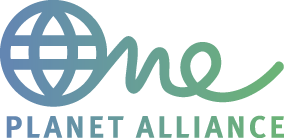What is at stake?
What is at stake?
Humanity’s quality of life — survival even — is dependent on the biological resources that our planet provides. Fertile soil, clean water, and clean air are necessary to provide humans with the food and physical health they require to thrive. Vibrant natural ecosystems such as oceans and forests are indispensable to keep our planet livable, including by absorbing carbon emissions. They also help keep humans psychologically and spiritually grounded and in balance.
A shift occurred in the early 1970s, when humanity started using more renewable natural resources than the planet is able to replenish. Another way to say it is that humanity’s Ecological Footprint overshot the biocapacity of the planet. That’s when the world fell into ecological deficit.
We’ve been growing that deficit ever since. Ecological Footprint and biocapacity data tell us that humanity currently uses as much renewable natural resources as if we lived on 1.7 planets. Carbon emissions alone make up 60% of that global Footprint. Signs that our planet’s biological capital is being compromised are everywhere. Climate change, deforestation, topsoil erosion, food insecurity, water mismanagement and water wars, migrations – to name just a few – are wreaking havoc on human communities and weakening economies.
Conversely, putting the biological capital at the center of any political and economic decision-making provides the minimum condition for humanity having a chance to achieve sustainable prosperity.


